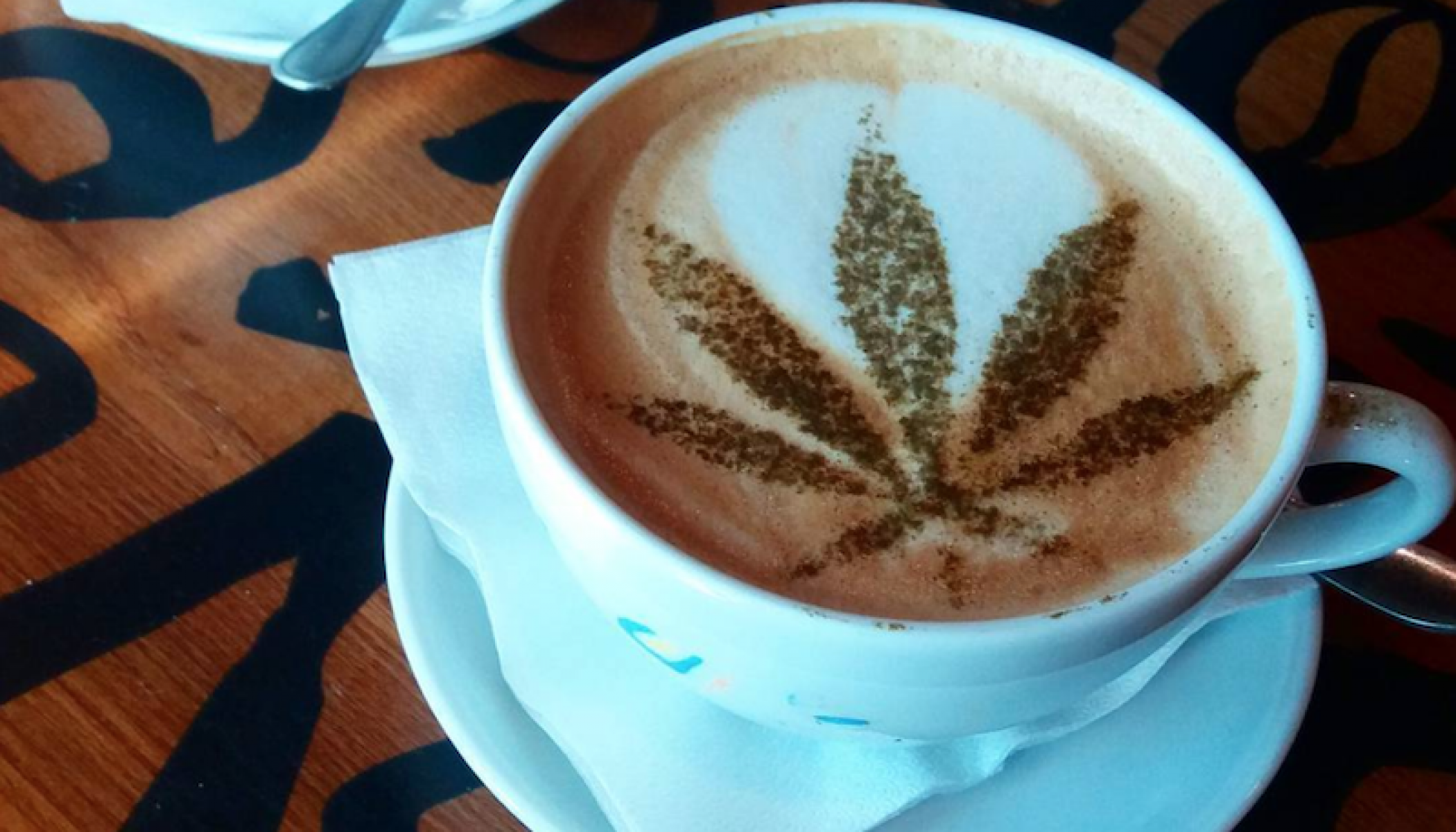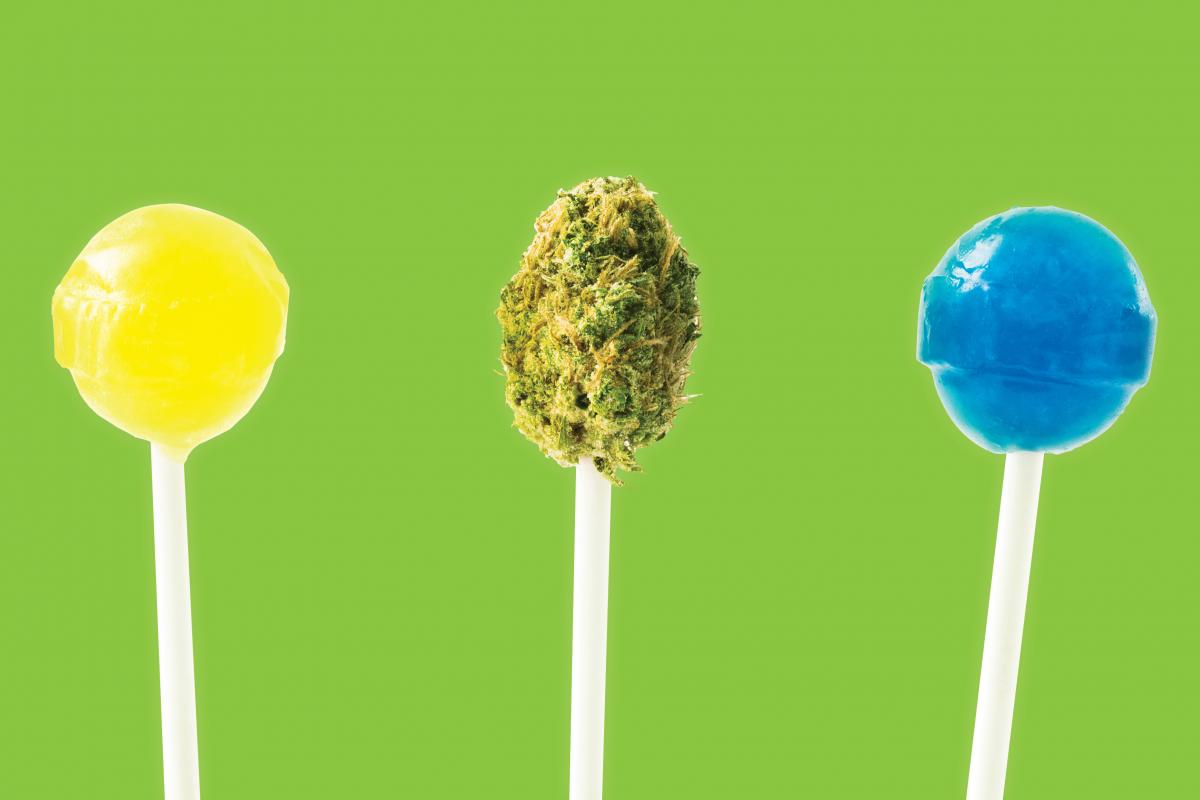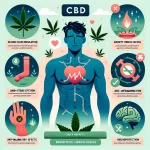CBD is this year’s chemical success story. Once you know where to look, you’ll see it everywhere: in the Juul pods at your nearest convenience store, baked into the cupcakes at vegan bakeries or infused into the espresso of your latte. A steady handed and artistically inclined barista might even create a little foam leaf if they’re feeling playful and you ask nicely. The chemical has infiltrated the lives of everyday America, and, like almost everything that piques the interest of the country, CBD has been wrung out to its fullest economic potential.
For anyone unaware, CBD is short for cannabidiol, a chemical that can be found in cannabis plants. However, unlike THC –— aka tetrahydrocannabinol, aka the chemical present in weed that gets you stoned — CBD has no psychoactive effects. Essentially, this means that letting enough CBD seep into your bloodstream makes you feel high without altering your sensory perception, spiking your anxiety or making you hungry. According to accounts from proponents, CBD quiets anxiety and raises your mood, allowing you to move through your day in a chemically assisted euphoria.
While research on the effects of CBD remains scarce and relatively unsteady, it has historically been used in experimental treatments for everything from post-traumatic stress disorder to acne to cancer. But there seems to be no better time than now for a revival of CBD in the wider cultural consciousness.
An influx of CBD-infused products has come at a time where there is nothing more important to spend your money on than self-care. Paired with that, a throat-clenching anxiety appears with every glance at cable news. It’s also come at a time when more states than ever have decided that letting people smoke weed might not tear apart the moral fabric of the country. And so, as a product basically promising to quell the soul’s deepest sources of unrest, CBD has gone the way of oat milk, cronuts and green juice. It is the next big thing for anyone who can afford it. From tinctures to creams and vape juices, there’s a wide range of CBD products you can use for your well-being. To find out more about some popular brands out there, you can check out this highly informative website.
To partake in the magical elixir known as CBD, it will cost you. A CBD couples massage in Philadelphia would leave a $700 hole in your wallet. A 600-milligram bottle of CBD oil could cost up to $70 at a dispensary. Purchasing a cup of CBD-infused black coffee at Caffeine Underground, an all-CBD cafe in Brooklyn, will set you back $6. To put that into perspective, Caffeine Underground typically adds 5 mg of CBD to a cup. But, studies have shown that in order to properly curb anxiety, the average person would require a dosage of around 300 mg.

Here’s just one more mind-boggling CBD product listing to drive the point home: A pack of nine gum drops (totaling 180 mg per pack) is currently being sold for $50.
The CBD industry is well on its way to becoming the next jewel in the crown of the ever-relevant self-care market. In fact, CBD is expected to become a billion-dollar industry by 2020. Given how quickly it’s growing, and how well it has latched on to market trends in mainstream culture, CBD’s economic propulsion comes as no surprise.
The trajectory of CBD also feels prophetic in how closely it mirrors that of its parent industry: cannabis. Ever since the rollout of its legalization, the cannabis industry has been the subject of much economic interest for how voracious its market immediately presented itself to be. Now that a staple of the underground economy could finally see the light of day, entrepreneurs devised ways to sell weed with increasingly complex production methods, and with that, higher prices.
These are the stories found at the forefront of the new cannabis industry, and there is a demographic. Success found here is the narrative of a young, typically white college graduate trafficking in a product that was once viewed by the country at large as seedy and degrading. It’s a difficult idea to process, to understand who reaps the economic benefits of the mainstreaming of marijuana, especially when it’s still a source of persecution for many. According to the ACLU, black people are 3.73 times more likely to be arrested for possession than white people.
Watching the evolution of the cannabis industry, it’s not difficult to imagine CBD crashing into a similar fate, especially as its legality has come into question in several states. While it’s hard to imagine the DEA going after someone buying a single bottle of CBD oil, it is classified as a Schedule 1 Controlled Substance, meaning it is still illegal in the eyes of law.
Alongside this, CBD’s legality has been challenged by a wave of raids on dispensaries across the country, as well as a push to make the substance completely illegal in Ohio. Should efforts to restrict the use of CBD prove successful, it’s not difficult to imagine the industry becoming one run by and catering exclusively to a wealthy base of customers, as has occurred with the marijuana industry, as the wealthy have been typically safer in the face of the law for low-level crimes than those of a lower income.
Of course, this is all speculative. But, the price tags attached to the most readily available CBD products still appear to restrict the supposed benefits from anyone who does not have a disposable income that allows them to drop $60 on a bottle of CBD lotion.
Despite the CBD-infused bath bombs, the mascara sticks and the vape pens, which promise a simple path to a clearer and happier existence, there is still the chance that CBD simply does not work that easily. Again, substantive research on the effects of CBD is elusive, and most commercially available products don’t even come close to the dosage widely accepted as necessary to see benefits. All there really is to go on are the anecdotes of those who desperately want it to work, who yearn for a catch-all cure for all of life’s problems. In the end, all the money may have gone to a source that’s more placebo than panacea.
















